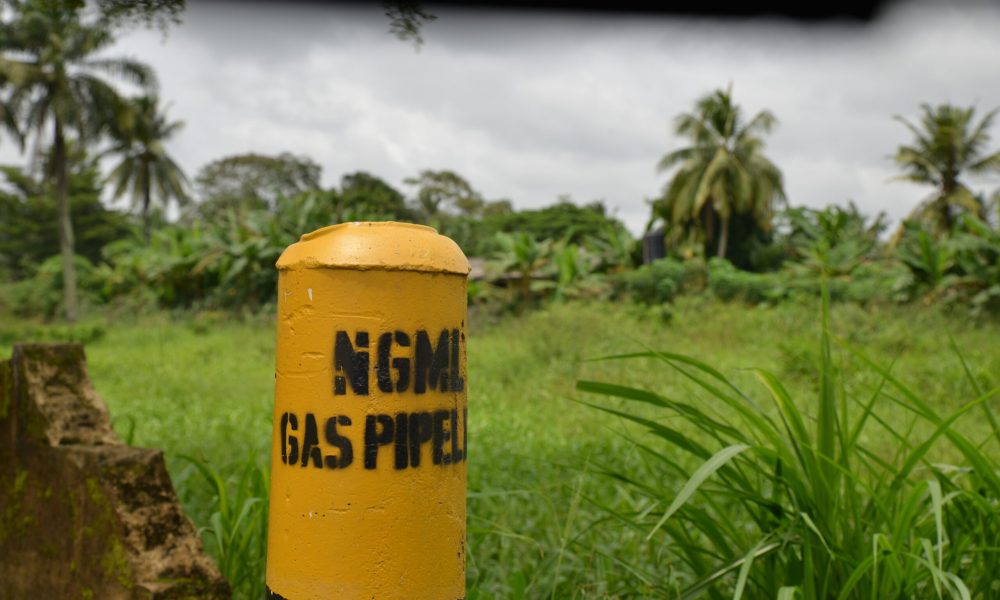🌿 Ruzu Non-Alcoholic Herbal Bitters
Ruzu Non-Alcoholic Herbal Bitters is a natural health supplement specially formulated to:
- ✅ Promote general wellness
- ✅ Detoxify the body
- ✅ Support the treatment of various ailments
Made from a powerful blend of 100% organic and medicinal herbs, Ruzu is completely alcohol-free, making it ideal for:
- 👪 All age groups
- 🌱 Health-conscious individuals
- 🌿 Anyone seeking non-alcoholic herbal remedies
Whether you're looking to boost your vitality, cleanse your system, or support healing the natural way, Ruzu Bitters offers a trusted herbal solution.
This investigation by PATRICK EGWU is the third of a year-long three-part investigative series on climate change disinformation and claims by international multinational oil companies – Shell and Eni – operating in Nigeria’s Niger Delta region. Read part 1 here and part 2 here.
A Naomisophyblog year-long investigation into climate disinformation and denials by multinational oil companies has found that despite claims to end fossil fuel emissions and protect the environment, routine gas flaring by multinational oil companies is currently going on in Nigeria’s Niger Delta region.
Two international oil companies – the UK-based energy giant Shell, through its Nigerian subsidiary, the Shell PetroleumDevelopment Company of Nigeria Limited (SPDC) and Italian giant Eni, with its Nigerian subsidiary, Nigerian Agip Oil Company are the biggest polluters in the region. Historic oil spills and gas flaring are common in local communities where they have been operating for nearly six decades.
Nigeria has the largest gas reserves in Africa with around 5.94 trillion standard cubic meters – equivalent to roughly three percent of the proved global natural gas reserves. According to PwC, a global accounting firm, the Nigerian economy lost about N233 billion ($761.6 million) to gas flaring, representing 3.8 percent of the global total cost in 2018. The environmental cost of gas flaring amounts to about N28.8 billion ($94 million) annually, according to the National Environmental Economic and Development Study (NEEDS).
A gas pipeline runs through the community. Photo by Patrick Egwu.
Despite these economic and environmental consequences and growing pressure from environmental activists and oil-producing communities, flaring still continues.
In an audacious 2023 Shell Sustainability Report, the company said “around 50 percent of total routine and non-routine flaring in our Integrated Gas and Upstream facilities in 2023 occurred in assets operated by the SPDC and Shell Nigeria Exploration and Production Company.”
The UK-based oil giant claimed it intends to invest about $13 billion annually in its gas infrastructure with a focus on Liquefied natural gas (LNG), potentially adding up to over $100 billion in total by 2030. The goal, the company said, is to maintain production at about 2.5 million or more barrels of oil per day.
To become a net-zero emissions energy business, the company has set a 2050 target and aims to eliminate routine gas flaring by 2025. Given current realities in local communities, these targets seem very unlikely.
At nightfall each day in Iwhrekan community, a bright-blazing flare glows in this community of some 2,500 residents from a two-mile distance, illuminating surrounding areas.
“It is there every day, every night,” said 45-year-old Jonah Gbemre, an environmental activist who lives in the community where Shell owns a gas flaring flow station. “This has been ongoing in our community for a very long time. So, during the day, when we don’t have light in the villages but we see the flare light in the bush.”
Jonah Gbemre, an environmental activist who is currently in court with Shell, said gas flaring is a regular occurence in the community. Photo by Patrick Egwu.
Like Shell, Eni claims decarbonization – reduction of carbon dioxide output into the atmosphere, is an integral part of its business strategy to achieve zero emissions by 2050. This, the company noted on its website, will start with a 35 percent cut to emissions by 2030 and 80 percent reduction by 2040.
In an email response to Naomisophyblog, the company boasted of its 2023 recognition with a Gold Standard award under the Oil and Gas Methane Partnership program.
“This award underlines the effectiveness of Eni’s decarbonization strategy in measuring methane emissions with the ultimate goal of reducing and mitigating them,” the company said.
However, gas flaring by the Italian giant continues in the Niger Delta. Naomisophyblog investigation shows that the company currently operates at least five active flow stations in Bayelsa State – one of the oil-producing states in the Niger Delta region where gas flaring still goes on. This was corroborated by two community residents who have visited four of the flaring sites.
Gas flaring is “one clear very visible challenge to climate claims made by the oil companies,” said Kathryn Nwajiaku-Dahou, chair of the expert working group of the Bayelsa State Oil and Environmental Commission (BSOEC), an independent commission, which investigated the activities of multinationals like Shell, TotalEnergies and ExxonMobil and made recommendations last year.
She said during the commission’s visits to oil-producing communities for data collection between 2020 and 2023, oil companies operating in the area like Shell turned off the gas flare plants “because they knew we were coming.”
Infographics on Shell and Eni’s emission claims by 2050
Nwajiaku-Dahou debunked Shell’s climate transition plans. She said as a result of pressure from shareholders and the public, the company is seeing the “writing on the wall and the profitability of pivoting to just transition and renewable energy.” But, the company, she said, has continued “investing in deep water exploration and fossil fuels.”
Earlier this year, the UK-based multinational faced growing pressure from 27 investors who manage more than €3.9 trillion ($4.3 trillion) to pursue decarbonization and curb its greenhouse gas (GHG) emissions footprints in line with the 2016 Paris Agreement climate goals. The main goal of the agreement is to strengthen the global response to the threat of climate change by keeping a global temperature rise below 2 degrees Celsius above pre-industrial levels and to pursue efforts to limit the temperature increase even further to 1.5 degrees Celsius.
Endless zero emission targets
Deadlines set to end gas flaring in Nigeria have not been kept. Since 1969 for instance, sixteen deadlines have been set by the Nigerian government to end routine gas flaring by oil and energy companies in the country.
In 2016, the government launched the Nigeria Gas Flare Commercialization Program (NGFCP) targeting 2020 as the year routine flaring would be end. This target was never met and several communities like Gbemre’s continued witnessing gas flaring by oil companies.
The NGFCP initiative was later relaunched in 2022 to eliminate gas flaring through commercial and technical sustainable gas utilization projects by third-party investors.
The Nigerian oil regulator estimates a $1billion revenue to the economy through gas flaring commercialization. The government said the total gas flare penalty it received from oil and gas companies from January 2023 to July of same year was N44.4 billion ($85.1 million).
The latest deadline to end gas flaring is 2030, per the revised Nationally Determined Contribution set targets which aims to decrease methane emissions from oil and gas operations by 50 percent by 2031. Back in 2016, Nigeria endorsed the World Bank’s Zero Routine Flaring by 2030 initiative. Launched in 2015, the initiative commits governments and oil companies to end routine flaring no later than 2030.
Infographics on a list of emission deadlines.
The penalties for gas flaring in Nigeria is $2 per 1,000 standard cubic feet for companies producing more than 10,000 barrels per day, while companies producing less than 10,000 barrels per day pay a fine of $0.5.
Gbemre said he is uncertain if the new target would be met, emphasizing that the government is not doing enough to achieve an emission-free environment and hold oil companies accountable. He said increasing significantly and suspending licenses of defaulters may be a deterrence.
As a community living in a coastal environment, he said he fears that a rise in sea level which is caused by gas flaring, may submerge the community.
A company spokesperson said Shell companies in Nigeria align with the country’s legislation and standards including actively seeking opportunities to reduce flaring. The company said it has implemented emission reduction initiatives such as the deployment of technologies for methane measurements, the use of technology for emission monitoring and preventing methane leaks.
Fleeing liabilities: Eni opts for divestment
In August this year, Eni completed the divestment of its operations in the Niger Delta after selling off its subsidiary, the Nigerian Agip Oil Company (NAOC) for $783 million to Oando, an indigenous energy company.
Naomisophyblog asked Eni if it’s trying to evade liabilities by divesting from the region. A spokesperson for Eni said the company “continued to carry out the clean-up of oil spills pertaining to its operations (of which a vast majority was due to acts of sabotage and oil theft) up till the time of the completion of Eni’s divestment.”
The company said the new operator of its Nigerian subsidiary will assume responsibility for remediation of any remaining oil spills as well as for subsequent ones.
Environmental activists like Gbemre said Shell is trying to evade its liabilities by selling off its onshore assets in the region.
Nwajiaku-Dahou said divestment doesn’t mean the companies are moving out of fossil fuel production.
“Not by any stretch of the imagination,” she said. “They’re doing more offshore, but they’re still investing in fossil fuels. The danger in presenting their transition on their websites is that they’re not accountable for that as well. So, we need to see the whole picture of what’s really happening in terms of their business and really measure their claims in that light.”
Gbemre and his community is currently in court with Shell over gas flaring. A previous court ruling which was in his favour, argued that gas flaring by Shell was a violation of their fundamental rights, including the healthy environment and dignity of human person guaranteed by the constitution.
Despite the presence of multinational oil companies, the community remains impoverished with lack of basic social services. Photo by Patrick Egwu.
Gbemre said the grounds for the lawsuit was that gas flaring exposes them to increased risk of premature death, respiratory illness, asthma and cancer. A 2017 study by a group of scientists at the University of St Gallen in Switzerland found that children born within 10km (six miles) of an oil spill were twice as likely to die in their first month.
Shell appealed the court decision, arguing that the pieces of evidence relied upon by the trial judge were not scientifically proven by Gbemre and the community before judgment was given in their favour.
The appeal hearing has been stalled, Gbemre said. Nigeria’s judicial system is often protracted, with proceedings dragging for a long time and affecting the delivery of justice.
As he waits for a new court date, Gbemre says he is relieved that the ruling is still in their favour and has not been set aside. He expresses concerns that the court judgment continues to be violated with ongoing gas flares.
“We are facing ecocide in our communities and the peace and unity we have previously enjoyed before the coming of the oil companies have been destroyed because of their divide and rule tactics,” he said.
This investigative project is funded and supported by Bertha Foundation as part of the 2024 Bertha Challenge Investigative Journalism Fellowship.
The post INVESTIGATION: Gas flaring by Shell, Eni continues despite climate commitment claims (Part III) appeared first on Latest Nigeria News | Top Stories from Naomisophyblog.
















